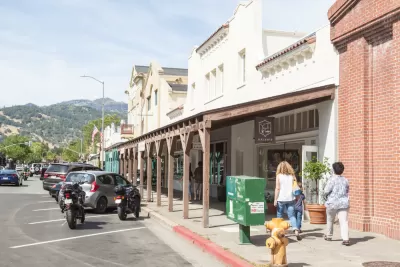A total of 144 metropolitan statistical areas might lose their federal designation if a proposal under discussion at the Office of Management and Budget is approved.

Mike Schneider, writing for the Associated Press, reveals the details of a plan under consideration at the federal Office of Management and Budget that would remove metropolitan statistical area (MSA) designations for 144 locations in the United States. The change would mean 144 MSAs with populations between 50,000 and 100,000 would be designated as micropolitan statistical areas instead. The 144 MSAs targeted for the change in designation represent a full third of the nation's total MSAs.
Officials in some of the cities included in the list of 144 are expressing concern that the change would affect federal funding for programs tied to MSA designation, like housing, transportation, and Medicare reimbursement programs, and create more competition for funding devoted to rural locations.
While Schneider's article focuses on some of the Midwestern locations likely to be impacted by the proposed change, the news also spread to the South, particularly in Alabama, where Lawrence Specker reports in a separate article that seven cities in that state are likely to be changed under the proposal, along with MSAs in the surrounding states of Louisiana, Arkansas, Tennessee, Mississippi, Georgia, and South Carolina.
As noted by Specker, the proposal has been under consideration for a few years, back to August 2019. The proposal is intended to update the definition of MSAs for the first time since the 1950s. The nation's population has doubled in that time, and percentage of Americans living in MSAs has increased from about half to 86 percent.
FULL STORY: Bye, Bismarck: 144 cities could lose status as metro areas

Alabama: Trump Terminates Settlements for Black Communities Harmed By Raw Sewage
Trump deemed the landmark civil rights agreement “illegal DEI and environmental justice policy.”

Study: Maui’s Plan to Convert Vacation Rentals to Long-Term Housing Could Cause Nearly $1 Billion Economic Loss
The plan would reduce visitor accommodation by 25% resulting in 1,900 jobs lost.

Why Should We Subsidize Public Transportation?
Many public transit agencies face financial stress due to rising costs, declining fare revenue, and declining subsidies. Transit advocates must provide a strong business case for increasing public transit funding.

Paris Bike Boom Leads to Steep Drop in Air Pollution
The French city’s air quality has improved dramatically in the past 20 years, coinciding with a growth in cycling.

Why Housing Costs More to Build in California Than in Texas
Hard costs like labor and materials combined with ‘soft’ costs such as permitting make building in the San Francisco Bay Area almost three times as costly as in Texas cities.

San Diego County Sees a Rise in Urban Coyotes
San Diego County experiences a rise in urban coyotes, as sightings become prevalent throughout its urban neighbourhoods and surrounding areas.
Urban Design for Planners 1: Software Tools
This six-course series explores essential urban design concepts using open source software and equips planners with the tools they need to participate fully in the urban design process.
Planning for Universal Design
Learn the tools for implementing Universal Design in planning regulations.
Smith Gee Studio
Alamo Area Metropolitan Planning Organization
City of Santa Clarita
Institute for Housing and Urban Development Studies (IHS)
City of Grandview
Harvard GSD Executive Education
Toledo-Lucas County Plan Commissions
Salt Lake City
NYU Wagner Graduate School of Public Service





























